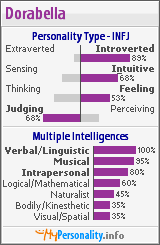Via many, many academic bloggers.
"Yeses" are in bold, caveats and comments in parentheses:
Total yes: 16
Total no: 18
1. Father went to college
2. Father finished college
3. Mother went to college
4. Mother finished college
5. Have any relative who is an attorney, physician, or professor
6. Were the same or higher class than your high school teachers
7. Had more than 50 books in your childhood home (A good chunk of them were probably children's books. Mom and I both made copious use of the library.)
8. Had more than 500 books in your childhood home
9. Were read children’s books by a parent
10. Had lessons of any kind before you turned 18
11. Had more than two kinds of lessons before you turned 18 (more than two kinds, but never simultaneously)
12. The people in the media who dress and talk like me are portrayed positively. (with caveat--there's also the whole "woman" thing)
13. Had a credit card with your name on it before you turned 18.
14. Your parents (or a trust) paid for the majority of your college costs. (HA!)
15. Your parents (or a trust) paid for all of your college costs. (")
16. Went to a private high school.
17. Went to summer camp.
18. Had a private tutor before you turned 18.
19. Family vacations involved staying at hotels. (Never went on any family vacations.)
20. Your clothing was all bought new before you turned 18.
21. Your parents bought you a car that was not a hand-me-down from them.
22. There was original art in your house when you were a child.
23. You and your family lived in a single-family house.
24. Your parent(s) owned their own house or apartment before you left home. (Nor after. Still have quite a few years on the mortgage.)
25. You had your own room as a child.
26. You had a phone in your room before you turned 18.
27. Participated in a SAT/ACT prep course.
28. Had your own TV in your room in high school.
29. Owned a mutual fund or IRA in high school or college.
30. Flew anywhere on a commercial airline before you turned 16. (Flights used to visit relatives on my dad's side a few times when I was under 7 or so. Father's funeral was in his family's state, so I imagine I flew then, though I don't remember that far back.)
31. Went on a cruise with your family.
32. Went on more than one cruise with your family.
33. Your parents took you to museums and art galleries as you grew up.
34. You were unaware of how much heating bills were for your family.
(Copyright: Will Barratt, Meagan Cahill, Angie Carlen, Minnette Huck, Drew Lurker, Stacy Ploskonka , "From What Privileges Do You Have?" Illinois State University)
The survey really highlights that there is no one good way to measure class. My family's always been working class by income standards, but the levels of and commitment to education in my immediate family were pretty high, as was my household's general "cultural capital." That, no doubt, aided me in gaining admission to an elite university and being able to seamlessly integrate myself into its discourse, both academic and social. (In other words, tee hee, I can walk among "them" undetected!) In that way, I consider my relatively high score to be pretty appropriate, even though on tax forms we looked a lot "lower-statused."
That said, you can look at many of these items (and many have) and interpret them in different ways, either as being able to indicate lower/upper class simultaneously (e.g. "why would a family go on a cruise twice, when they could vacation in other, nicer places?"; not having television in keeping with an ethical line that it's bad for kids, which seems anecdotally to be a more common view in upper-class households) or as indicating aspects of one's circumstances that are not particularly class-inflected (e.g. I had my own room because I had no siblings; an upper-kid kid who doesn't need a private tutor probably won't have one).
One can also argue over the relative weighting of the items (I personally wouldn't equate having a trust paying 100% of your college costs with having a phone in your room, but that's just me), as well as some significant omissions--being raised by one parent springs immediately to mind. In any case, I'm glad the exercise was developed, and I hope it eventually gets put to good use and discussion in college classrooms.
skip to main |
skip to sidebar
Exceedingly necessary.
Procrastination Aides
- a k8, a cat, a mission.
- A Slant Truth
- Academic Cog
- Acephalous
- Anastasia
- Ancrene Wiseass
- Bitch Ph.D.
- clashing hats
- Confessions of a Community College Dean
- Diary of an Anxious Black Woman
- Disgrunted Julie: A PhD in Progress
- Easily Distracted
- Echidne of the Snakes
- Feministe
- Ferule & Fescue
- Fumbling Towards Geekdom
- Half An Acre
- I Blame The Patriarchy
- it's probably me
- Junkfood Science
- Kate Harding's Shapely Prose
- La Chola
- Narratives (Adjunct Whore)
- Off Our Pedestals
- Ornamenting Away
- Paideia's Closet
- professorial confessions
- Quod She
- Reassigned Time
- Renegade Evolution
- RussianViolets
- Scientiae
- Sfrajett's City 2.0
- Shakesville
- Slaves of Academe
- Stressful Times for Psyc Girl
- Tenured Radical
- The Carnival of GRADual Progress
- The Doctor Isn't.
- The Paper Chase
- The Rotund
- The-F-word.org
- Thus Spake Zuska
- To Delight and to Instruct
- Views From The Tower
- WIMN's Voices: A Group Blog on Women, Media, AND...



No comments:
Post a Comment